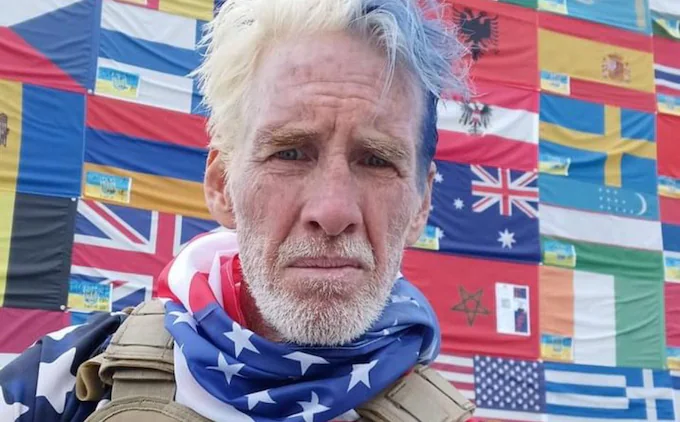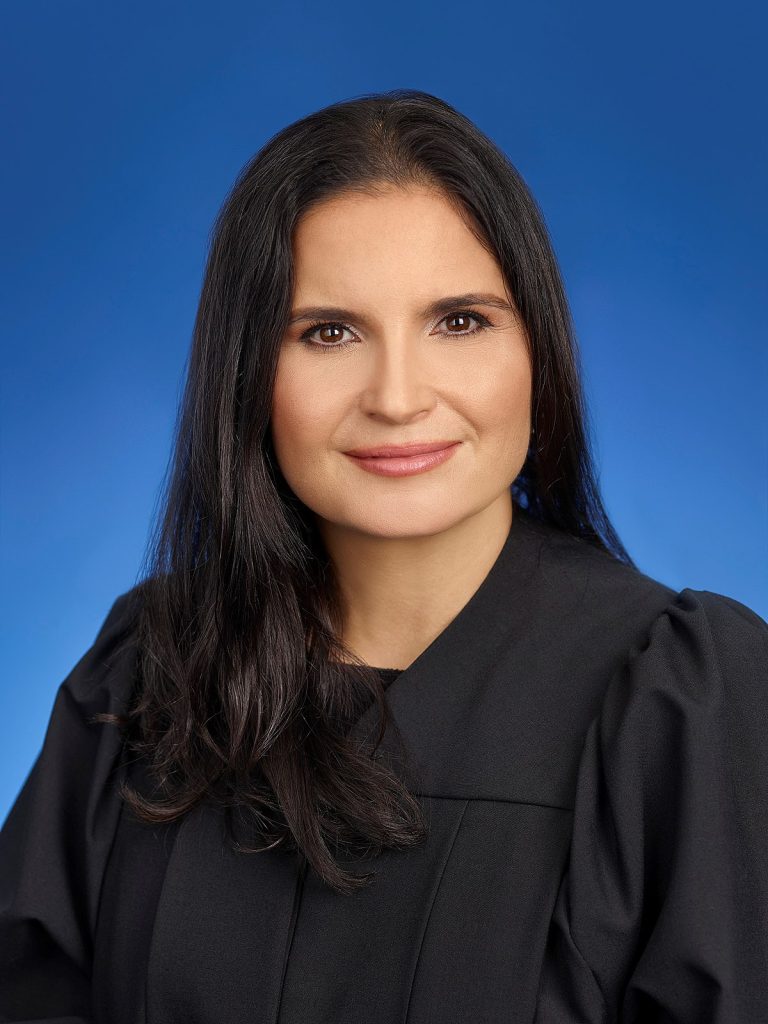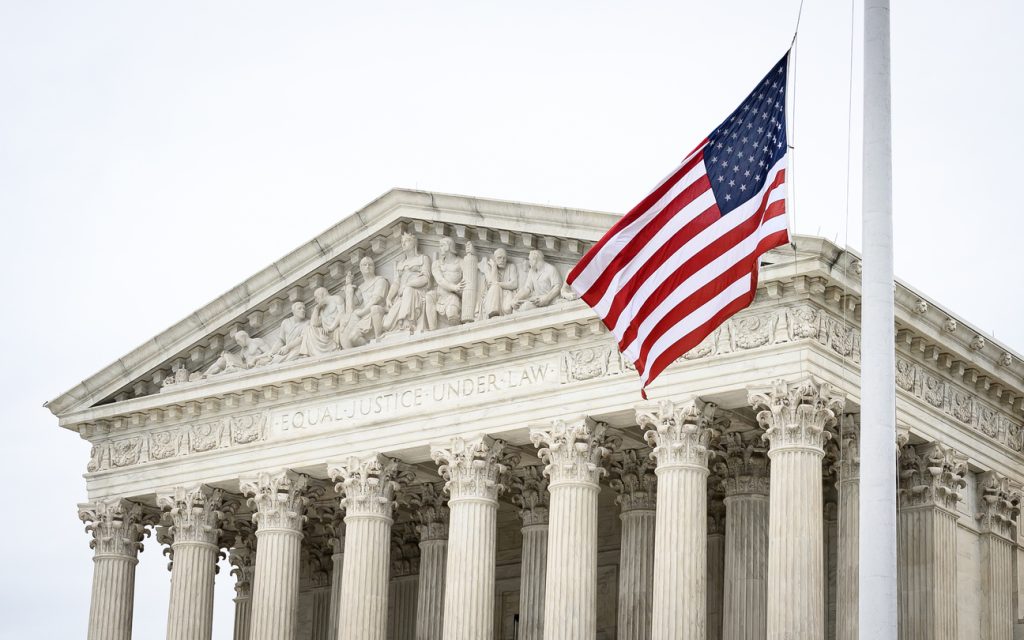Judge Cannon Denies Trump Ties, Declines to Step Aside in Assassination Case. Who Is Judge Cannon?
Judge Aileen Cannon has declined to recuse herself from the criminal proceedings involving the individual accused of attempting to assassinate Donald Trump.
She asserts that there is no personal relationship between herself and the former president, who appointed her to the federal judiciary, and emphasizes that she does not influence his public statements regarding her. In her decision issued on Tuesday, Cannon stated that she has neither communicated with Trump nor met him, and she expressed no apprehensions regarding the potential “political consequences of my rulings.”
Donald Trump
Attorneys representing Ryan Routh, who is alleged to have established a sniper’s position outside Trump’s golf club in West Palm Beach, Florida, contended that Cannon’s previous dismissal of the criminal case against Trump concerning his management of classified documents could suggest a bias in their client’s case, where Trump is identified as the purported victim. Routh’s legal team highlighted several occasions when Trump has publicly commended Cannon for her ruling to dismiss the documents case, including remarks made during his acceptance speech at the recent Republican National Convention.
Cannon stated, “I have no control over what private citizens, members of the media, or public officials or candidates choose to say about me or my judicial decisions.” Defense attorneys raised concerns that should Trump secure victory in the 2024 presidential election, he might promote Cannon to a higher court, which could potentially sway her judgment in this matter. Nonetheless, Cannon firmly maintained that she is not “concerned about the political consequences of my rulings or how those rulings might be perceived by ‘some in the media.'”
Katy Perry Faces Allegations of Copying Lesser-Known Artists’ Work
She further clarified, “I have never spoken to or met former President Trump except in connection with his required presence at an official judicial proceeding, through counsel. I have no ‘relationship to the alleged victim’ in any reasonable sense of the phrase. I adhere to my oath to administer justice faithfully and impartially, in accordance with the Constitution and the laws of this country.”

Ryan Wesley Routh
Cannon stated that she would not engage with the “speculation” presented by Routh’s attorneys, emphasizing that the case was assigned to her randomly, similar to the case involving Trump’s classified documents. “This case, akin to the previously mentioned cases concerning former President Trump, was assigned to me through the Clerk’s random case assignment system. That is final. I will not be influenced by inaccurate, uninformed, or speculative opinions to the contrary,” Cannon asserted. Special counsel Jack Smith is presently appealing Cannon’s dismissal of the documents case.
Cannon further dismissed the defendant’s efforts to question her relationship with one of the prosecutors, clarifying that although she attended the prosecutor’s wedding, she does not maintain any personal relationship with him at this time. “I had a professional friendship with the mentioned prosecutor during my tenure as a prosecutor (2013–2020), similar to my relationships with other colleagues in the United States Attorneys’ Office.
As part of that professional friendship, I attended his wedding nearly a decade ago. I do not have any ongoing personal relationship with the prosecutor, nor have I communicated with him in years,” she explained. Routh’s trial is currently scheduled for February.
Aileen Cannon: The Controversial Rise of a Federal Judge
From her upbringing in Miami, where her Cuban mother and Midwestern father shaped her early years, to her role as a United States federal judge in the Southern District of Florida, Cannon’s story is a study in ambition, controversy, and judicial philosophy.

Aileen Cannon
Born in Cali, Colombia, in 1981, Cannon was raised in Miami and attended a private school there. She earned her law degree from the University of Michigan Law School in 2007. Her elevation to the federal judiciary occurred just 12 years after she was first licensed to practice law, which aligns with the minimum experience criteria set by the American Bar Association for nominees. Following her graduation from law school, Cannon clerked for an appellate judge in Iowa and subsequently worked as an associate at the Gibson Dunn law firm in Washington, D.C.
Between 2013 and her nomination by Trump, she served as a federal prosecutor in Fort Pierce, Florida. Last year, The New York Times interviewed a defense attorney from West Palm Beach who described her as “thorough, meticulous, and often willing to rule against the government.” Valentin Rodriguez Jr. conveyed to the newspaper, “The general impression I have received from her is that she does not accept everything the government presents.”
He added, “One cannot assume that if you and the government reach some form of agreement regarding sentencing or a plea, that it will necessarily sway her. In that regard, she could be considered a freethinker.”
The Menendez Brothers’ Money
Her work didn’t go unnoticed. In 2019, Senator Marco Rubio identified Cannon as a potential federal judge. By May 2020, President Donald Trump formally nominated her to the bench. At just 39, Cannon was confirmed by the Senate, cementing her place in judicial history.
Trump, Special Masters, and Judicial Scrutiny
Cannon’s most controversial moment came in 2022 when she presided over Trump v. United States, involving classified documents seized from Mar-a-Lago. Her decision to grant Trump’s request for a special master to review the materials was met with widespread criticism. Legal experts and the Eleventh Circuit Court of Appeals found her jurisdictional rationale deeply flawed, calling her actions an “abuse of discretion.” This case marked the beginning of Cannon’s polarizing judicial legacy.

The scrutiny intensified in 2023 when Cannon was assigned to Trump’s criminal case involving classified documents. Critics pointed to her prior rulings as evidence of potential bias and called for her recusal. Cannon’s decisions, which included granting Trump’s requests for procedural delays, further fueled debate. By July 2024, she dismissed the case altogether, citing constitutional concerns over the appointment of Special Counsel Jack Smith—a ruling now under appeal.
Cannon describes herself as an ‘originalist’ and ‘textualist’, emphasizing the judiciary’s limited role in interpreting the law. This philosophy aligns with her Federalist Society roots but has drawn criticism in cases where her rulings seemingly align with partisan interests. Her decisions have been described as both meticulous and unorthodox, often extending significant deference to defendants, including Trump.
However, questions about her ethical transparency have surfaced. Reports revealed Cannon failed to disclose luxury legal seminars funded by George Mason University, prompting concerns about compliance with federal ethics rules. Her court attributed the omissions to technical errors.

At just 43, Aileen Cannon has already left an indelible mark on the federal judiciary. Celebrated by some as a rising star in conservative legal circles and criticized by others as a partisan jurist, Cannon’s career is far from ordinary. Her rulings, particularly in cases involving Donald Trump, have shaped national debates about judicial impartiality, ethics, and the separation of powers.
As appeals over her decisions continue, Cannon remains a pivotal figure in American jurisprudence—a lightning rod for praise and critique alike. Whether history will view her as a defender of constitutional originalism or a judge swayed by partisan considerations remains to be seen.
Cannon’s personal life offers a glimpse into her grounded demeanor. Married to restaurant executive Josh Lorence, she is a mother of two and resides in Vero Beach, Florida.